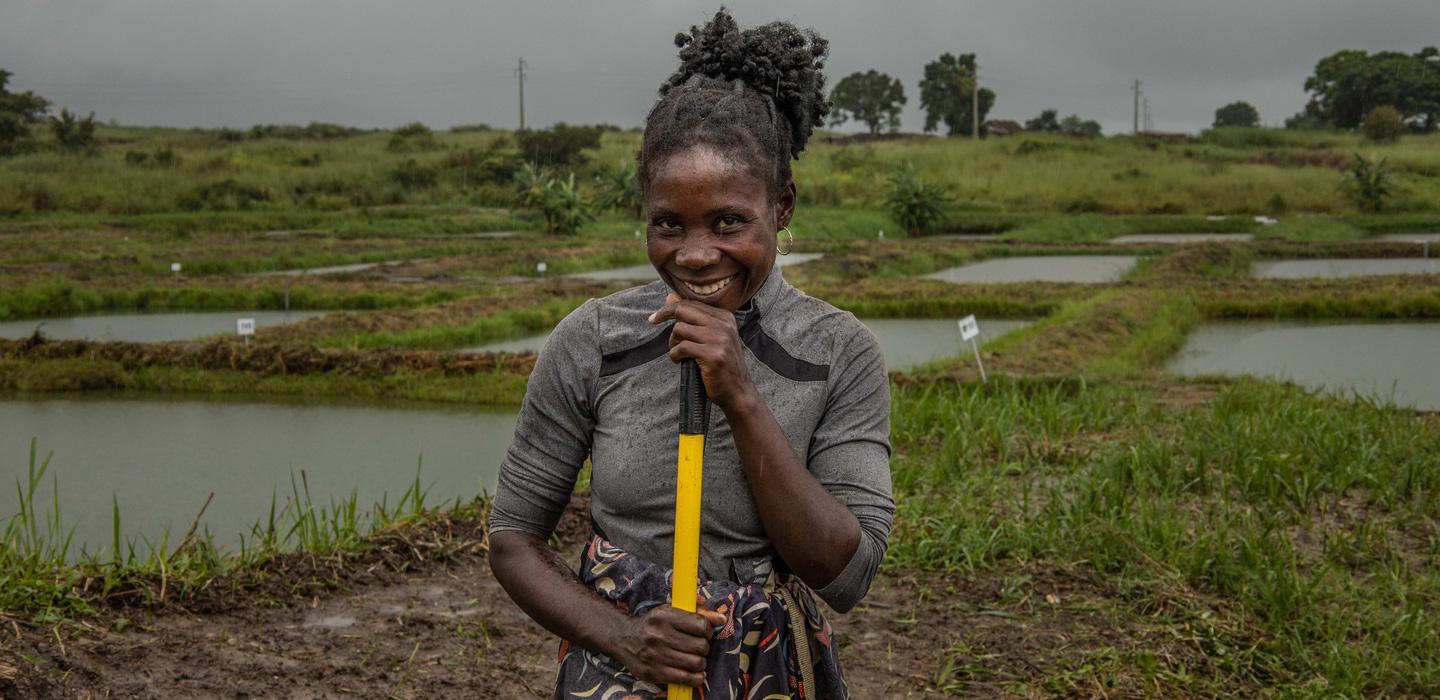7 innovations transforming rural lives
IfadAssetRequestWeb
Asset Publisher
7 innovations transforming rural lives
Estimated reading time: 3 minutes
For IFAD, innovation is much more than just a buzzword: it can make an enormous difference to the lives of rural people.
In fact, small-scale farmers rely on new ideas, techniques and technologies to prosper in our rapidly changing world. Innovation is essential for the people at the heart of our food systems to adapt and transform those systems for the better.
IFAD is always looking for new technologies and approaches to designing, implementing and evaluating our projects so that we can support rural people better. The strong partnerships we forge with the private sector and other international financial institutions are key to this.
Let’s explore seven innovations driving sustainable, inclusive rural development today.
1. Rethinking private investment
The private sector has historically been reluctant to invest in rural finance because it is perceived as too risky. But the Africa Rural Climate Adaptation Finance Mechanism (ARCAFIM) is changing this. This innovative risk-sharing mechanism incentivises private institutions to extend their financial products to small-scale farmers and rural businesses in Kenya, Rwanda, Tanzania and Uganda. Launched in 2023, ARCAFIM will enable hundreds of thousands to access loans for climate adaptation.
2. Fresh ways to farm fish
In Angola, our Artisanal Fisheries and Aquaculture Project pioneered the use of nutri-ponds in rural communities. These innovative inland fish farms are packed with native species that supplement local diets. The ponds built by the project provided so many fish to eat and sell that local farmers set up more with their own resources. Alongside the ponds, families are encouraged to grow vegetable gardens to further diversity their diets.
| Small-scale farmers in Malanje Province, Angola, catch fish at one of their ponds. ©IFAD/António Penelas |
3. Boosting digital inclusion
Around the world, blockchain technology is catalysing a new digital revolution – and IFAD is ensuring rural people are part of it with AgroWeb3. This platform for digital wallets, currently under development, uses secure, decentralized blockchain technology to increase access to digital financial tools. Small-scale farmers will be able to verify their identities instantly, connect to markets and manage their finances quickly and securely. By democratizing digital finance, AgroWeb3 will help to transform rural people into financially independent entrepreneurs.
4. Taking tracking to the next level
As an international financial institution, making sure our funds get to the people they are intended for is a top priority for IFAD. Our TRACE Blockchain project is revolutionizing how we do this. This completely transparent, incorruptible and auditable ledger uses blockchain technology to track the movement of funds and goods from donors all the way to individual farmers. TRACE ensures that every cent is accounted for, enhancing business efficiency and compliance with anti-money laundering policies.
5. Catalysing change for rural women
For women in over 50 IFAD projects, the innovative Gender Action Learning System (GALS) has led to economic empowerment, shared workloads and greater decision-making power. By stimulating honest conversations in households, this community-led approach developed and championed with IFAD’s support is ensuring rural development happens in a gender-equitable way. In Nigeria, for example, women’s groups supported by VCDP used GALS to convince male leaders to support them in owning land.
| Lobabatu Adamu Ibrahim leads a women's cooperative in rural Nigeria that has seen the positive impact of GALS. ©IFAD/Andrew Esiebo |
6. Lessening livestock’s impact
Livestock is an important source of nutrition and income for pastoralists, but it is also a big contributor to the greenhouse gas emissions that drive climate change. The innovative GLEAM-i tool, developed in collaboration with the World Bank and FAO, is allowing IFAD to address this contradiction. By calculating the carbon footprint of livestock in a specific area, IFAD can assess how to increase productivity while decreasing emissions. In Kyrgyzstan, the tool showed how one IFAD project could increase milk and meat production by 4 per cent while cutting emissions by 17 per cent.
7. Sustainably stimulating soil
Rural communities struggling to improve their livelihoods often have little choice but to resort to polluting fertilizers and pesticides. But thanks to an IFAD-supported project, small-scale farmers in the Lao People's Democratic Republic are turning to specially cultivated bacteria known as effective micro-organisms. These fertilize the soil and allow earthworms and other beneficial animals to flourish over pests, boosting yields and livelihoods in a sustainable way.
Looking to the future, IFAD's goal is to move towards open innovation that transcends sectors and geography. That’s why we co-founded the Moonshots for Development (M4D) network, which works collectively to launch ambitious solutions to global development challenges using emerging technologies – as well as holding regular open innovation challenges.
For IFAD, innovation is the key to effectiveness, efficiency, transparency and inclusivity. We will continue to promote and incubate daring ideas that work for rural people – and that show the way to a climate-resilient and food-secure future.
Publication date: 09 May 2024